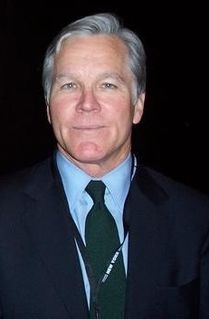A Quote by Bill Keller
Liberation movements - prizing ends over means - are not always particular about their friends or scrupulous about their transactions.
Quote Topics
Related Quotes
Historically the great movements for human liberation have always been movements to change institutions and not to preserve them intact. It follows from what has been said that there have been movements to bring about a changed distribution of power to do - and power to think and to express thought is a power to do- so that there would be a more balanced, a more equal, even, and equitable system of human liberties.
What's more important is that we talk about movements; change happens through movements. The movement to end slavery, the movement to bring justice for those who have been left out of the system, movements to include women, movements around sexual preference - all these movements brought about change.
And violence is impractical, because the old eye for an eye philosophy ends up leaving everybody blind .. It is immoral because it is a descending spiral ending in destruction for everybody. Means and ends are inseparable. The means represent the ideal in the making; in the long run of history destructive means cannot bring about constructive ends.
Outside the firm, price movements direct production, which is co-ordinated through a series of exchange transactions on the market. Within a firm, these market transactions are eliminated and in place of the complicated market structure with exchange transactions is substituted the entrepreneur-co-ordinator, who directs production.
Political movements for justice are part of the fuller development of the cosmos, and nature is the matrix in which humans come to their self-awareness of their power to transform. Liberation movements are a fuller development of the cosmos's sense of harmony, balance, justice, and celebration. This is why true spiritual liberation demands rituals of cosmic celebrating and healing, which will in turn culminate in personal transformation and liberation.
Now it is usual-but not to say normal-for people to interest themselves primarily in means, without noticing that means exist only in relation to ends and that, in accepting certain means, they unconsciously accept the ends that make them so. In other words, they accept whatever philosophy happens to be embodied in the values and institutions of a particular civilation.
We are so anxious to achieve some particular end that we never pay attention to the psycho-physical means whereby that end is to be gained. So far as we are concerned, any old means is good enough. But the nature of the universe is such that ends can never justify the means. On the contrary, the means always determine the end.
The end is what you want, the means is how you get it. Whenever we think about social change, the question of means and ends arises. The man of action views the issue of means and ends in pragmatic and strategic terms. He has no other problem; he thinks only of his actual resources and the possibilities of various choices of action. He asks of ends only whether they are achievable and worth the cost; of means, only whether they will work. ... The real arena is corrupt and bloody.
The idea of direct action against the evil that you want to overcome is a kind of common denominator for anarchist ideas and anarchist movements. I think one of the most important principles of anarchism is that you cannot separate means and ends. Anarchism requires means and ends to be in line with one another. I think this is in fact one of the distinguishing characteristics of anarchism.
War is by definition the indiscriminate killing of huge numbers of people for ends that are uncertain. Think about means and ends, and apply it to war. The means are horrible, certainly. The ends, uncertain. That alone should make you hesitate. . . . We are smart in so many ways. Surely, we should be able to understand that in between war and passivity, there are a thousand possibilities.


































